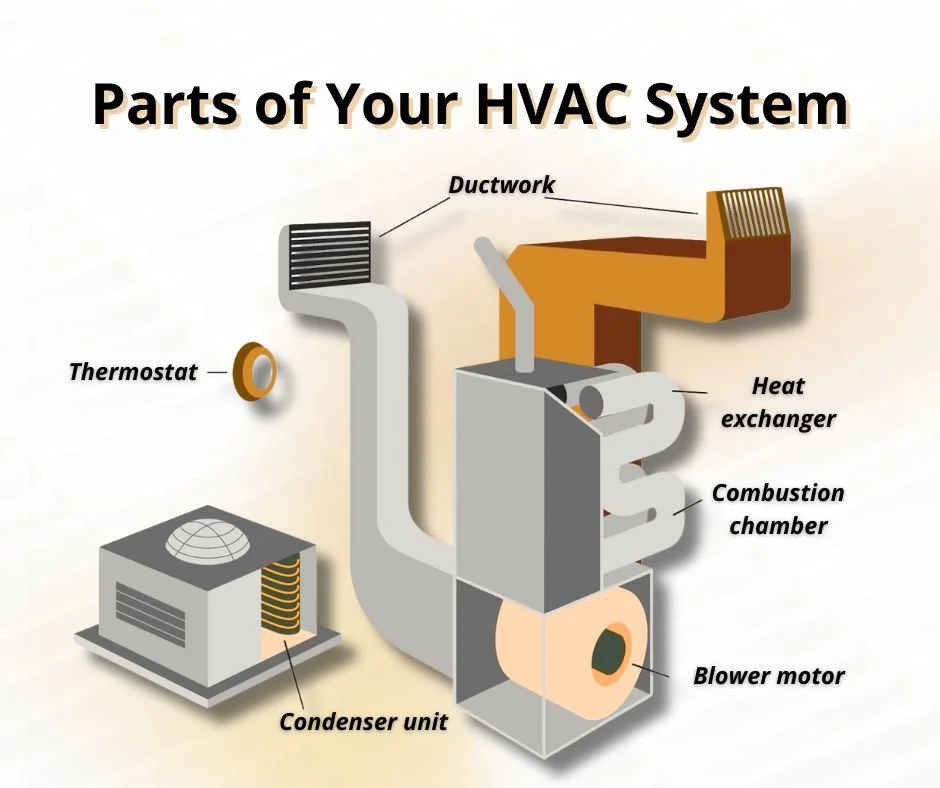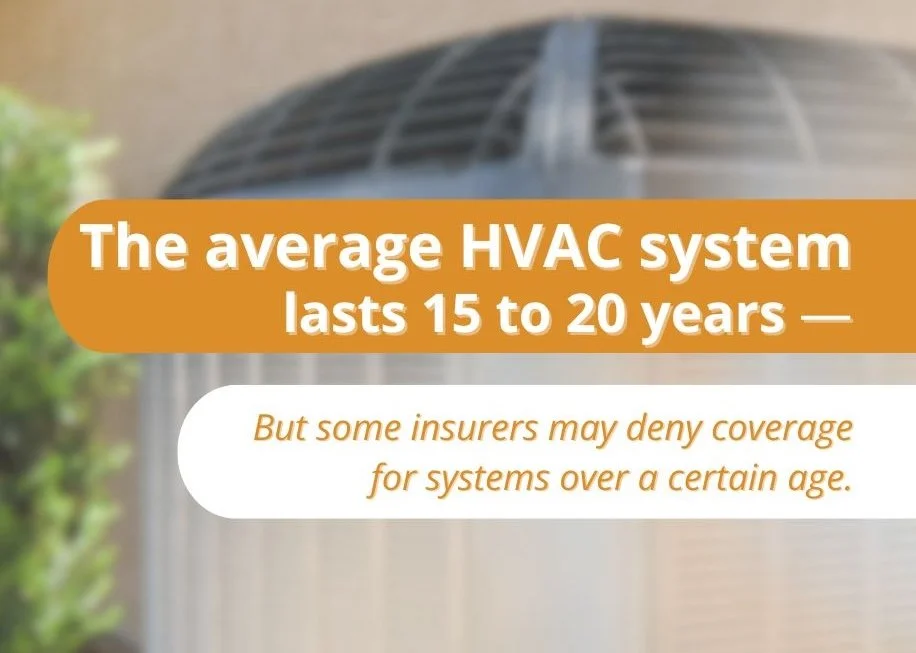What HVAC Components Matter Most During Home Inspections
When you're getting a home inspection, especially in Florida, HVAC components are one of the first things that get checked. These systems do more than just keep the house cool. They affect energy bills, indoor air quality, and even whether or not a home can be insured.
In a general home inspection, HVAC issues are some of the most common and expensive problems found.
Here's what matters, why it matters, and how to make sure your system doesn’t end up being a deal-breaker.
What Inspectors Look at in an HVAC System
A home inspector is not an HVAC technician, but they know exactly what to look for when it comes to visible and accessible components.
The goal is to identify signs of damage, safety concerns, or signs that the system is not working properly.
Here are the main HVAC components that are inspected:
Air handler or furnace: Usually found in a closet, attic, or garage. Inspectors check for rust, loose wires, corrosion, water damage, or anything that looks unsafe or poorly maintained.
Outdoor condenser unit: This sits outside the house. The inspector checks if the fan is spinning correctly, the fins are clean and undamaged, and there’s proper space around it for airflow.
Ductwork: Ducts move air throughout the home. If they're crushed, disconnected, full of dust, or leaking, they reduce efficiency and can raise energy bills. Visible ducts in the attic are often checked for proper sealing and insulation.
Thermostat: Inspectors test it to see if it turns the system on and off correctly. If it's placed in a poor location (like near a hot window), it can affect how the system runs.
Drain line and drip pan: These lines remove moisture from the air. If they're blocked, water can overflow and cause ceiling stains, mold, or even structural damage.
Inspectors don’t open the system or test refrigerant levels, but they can still spot signs of trouble. If anything looks unsafe or out of the ordinary, it’s noted in the report.
How HVAC Findings Can Affect Your Report
If something is wrong with the HVAC system, it could cause delays in the sale or insurance approval. Florida homes often require a 4-point inspection for insurance.
One of those four points is HVAC. If the system doesn’t work, is unsafe, or is too old, insurance companies may deny coverage.
The average HVAC system lasts 15 to 20 years, but some insurers may deny coverage for systems over 10 to 15 years old, even if they still work.
That’s because older units are more likely to fail and can’t always be repaired if they use outdated refrigerants like R-22.
A full system replacement can cost between $4,000 and $10,000, depending on the size of the home and the type of unit installed.
So, if the system is flagged during inspection, the buyer may ask for a discount, the seller may need to replace the system, or a separate HVAC technician may need to be called in for a closer look.
Red Flags in Florida HVAC Systems
Some HVAC problems come up again and again in Florida homes.
The mix of heat, humidity, and older construction means there are common issues that inspectors know to look for:
Rust or corrosion: Moisture can build up inside or around the system, especially in garages or attics.
Blocked or leaking drain lines: These cause water damage and are a top reason inspectors flag an HVAC system.
Damaged or unsealed ducts: Ducts in the attic often get crushed or disconnected. That means poor airflow and higher energy bills.
Old refrigerant: Systems made before 2010 may still use R-22, which was banned due to environmental concerns. If that system leaks, repairs can be expensive or impossible.
No recent maintenance: If the filter is dirty, the system is loud, or the area is full of dust, it’s a sign the system hasn’t been serviced in a while.
Each of these issues matters. Even something small like a clogged line or missing insulation can lead to mold, uneven cooling, or thousands of dollars in repairs if left alone.
What an Inspector Can and Can’t Do
Home inspections are designed to look for general safety and function, not to provide a detailed HVAC diagnosis. That’s why inspectors don’t:
Take the system apart
Measure refrigerant pressure
Guarantee system lifespan
Check airflow in every room
If the system turns on and appears to run, but has visible problems or is unusually old, it will be listed in the report with a recommendation to have it checked by a licensed HVAC contractor.
For buyers, it’s smart to ask the seller for HVAC service records. For sellers, getting a system cleaned and serviced before listing can help avoid surprises.
Simple Maintenance
Even if your HVAC system passes inspection, regular maintenance is the only way to keep it running efficiently and avoid problems down the road.
Homeowners should:
Replace the air filter every 30 to 90 days
Keep leaves and debris away from the outdoor unit
Have the system cleaned and inspected once a year
Check the drain line for clogs
Make sure vents aren’t blocked
A well-maintained system runs more efficiently, lasts longer, and is less likely to raise flags during inspection.
When to Call a Professional
If you’re planning to buy a home, sell one, or renew your insurance, your first call should be to a licensed home inspector.
HVAC systems are a key part of any full home inspection or 4-point inspection, especially in Florida where insurers often want proof that the system is safe, functional, and within an acceptable age range.
A home inspector can help identify:
Whether the HVAC system is operating at a basic level
If visible signs of damage, corrosion, or age could affect your report
If the system’s condition might create issues for insurance or sale negotiations
This type of evaluation is especially important if:
The HVAC system is older than 10–15 years
The home hasn’t had recent maintenance
You’re unsure if the system meets 4-point or wind mitigation requirements
You see rust, leaks, or other visible issues
In these cases, a licensed home inspector will flag what’s relevant in the report and let you know if it needs further attention.
Suppose the inspection reveals more serious problems, such as refrigerant leaks, failed cooling, or internal damage. In that case, you should follow up with an HVAC technician to run diagnostics, test system performance, and handle any necessary repairs or replacements.
Conclusion
HVAC components are one of the top areas of concern in a home inspection. They impact comfort, energy use, safety, and even whether or not you can get insured.
Whether you're buying or selling, understanding the condition of the HVAC system can help you make smarter decisions and avoid costly surprises.
If you're unsure about the condition of your HVAC system, a professional inspection is a good place to start. Schedule your inspection today and make sure your HVAC system is ready to pass.


